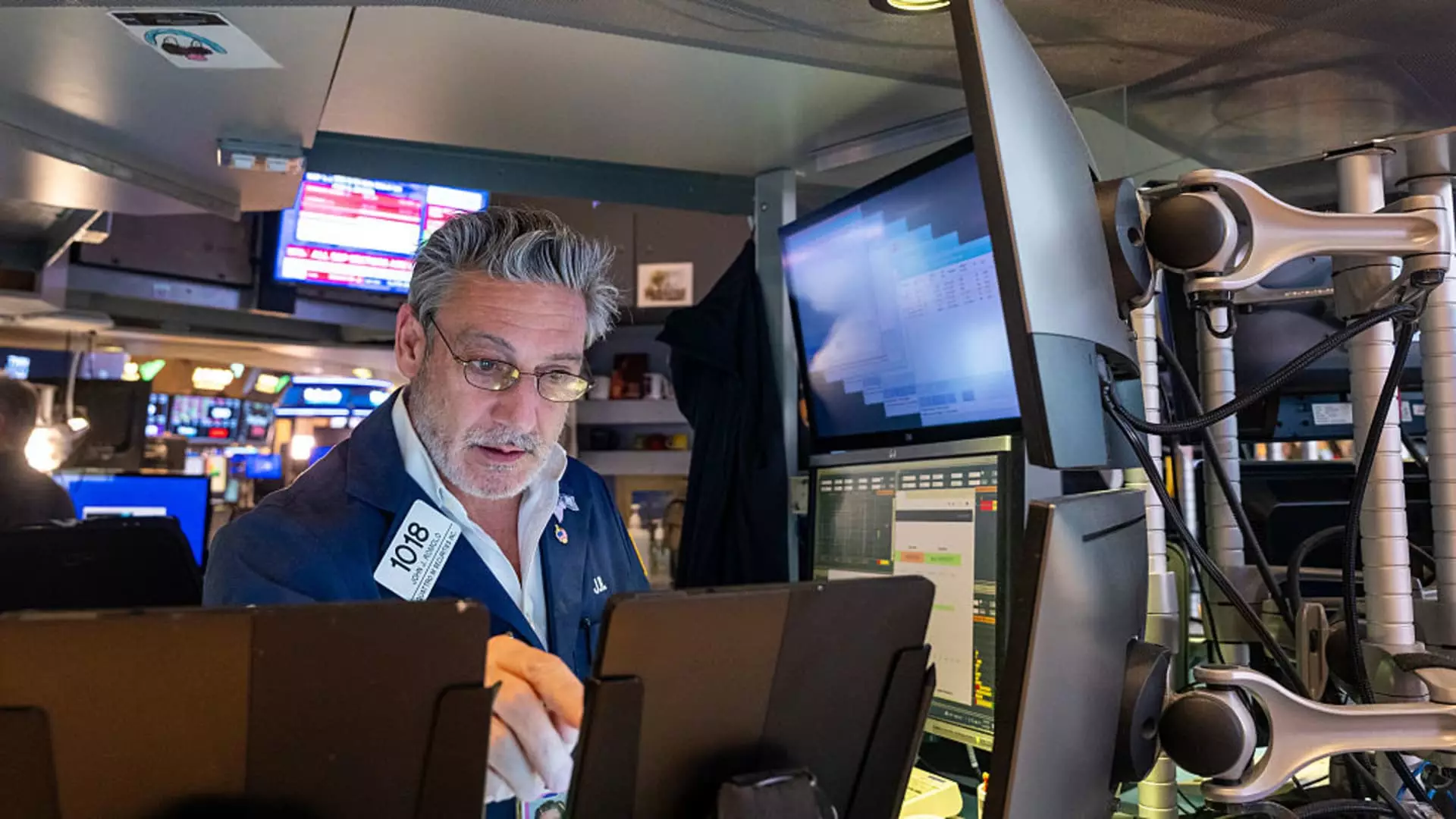5 Reasons Why Defense Stocks Are Thriving Amid Economic Turmoil

In recent weeks, the stock market has been rocked by the relentless waves of economic uncertainty brought on by escalating trade tensions, particularly between the United States and several global partners. On one particularly tumultuous Thursday, the S&P 500 plummeted by 3.5%, only to rebound with extraordinary gusto a day earlier with a 9% spike. The dramatic see-sawing of market values underscores the precariousness of investor sentiment in an era dominated by tariffs and economic politics. However, nestled within this chaos are the defense stocks, which have emerged as a beacon of stability and exceptional performance.
Amid the chaos surrounding tariffs, it’s perhaps disheartening to discover that many sectors of the economy remain vulnerable. Yet, defense stocks like Huntington Ingalls Industries and Lockheed Martin have not only weathered the storm but thrived, with investors eager to funnel their resources into firms that are seemingly insulated from the global volatility caused by trade disputes. The contrast between broader market trends and the performance of these defense companies illustrates a fundamental truth: some sectors possess an inherent resilience bolstered by not being overly reliant on international markets.
Domestic Operations: The Shield Against Tariffs
One key reason defense stocks are flourishing during this turbulent period is their overwhelmingly domestic focus. As Sheila Kahyaoglu, a Jefferies aerospace and defense analyst, emphasizes, the majority of these companies derive most of their revenue from within the United States—limiting their exposure to tariffs that primarily impact imported goods. This domestic concentration not only enhances profitability, but it also lays the groundwork for a defense sector that can sidestep many risks associated with global trade confrontations.
When viewed through this lens, it becomes clear that the continued political instability in various regions—especially in the Middle East and the Pacific Rim—could serve as a backdrop that strengthens investor confidence in defense spending. With the prospect of increased military expenditure driven by fears of global conflicts, analysts point out that defense companies are well-positioned to thrive as they support national priorities in security.
The Trump Effect: Defense Spending on the Rise
The recent announcement by the Trump administration regarding a proposed defense budget exceeding $1 trillion has sparked a noteworthy positive outlook for defense companies. The planned financial allocations are seen not merely as bureaucratic exercises but as legitimate sources of competitive advantage for U.S. defense contractors. Analysts within the industry have expressed optimism, highlighting that these budgetary commitments reflect a long-term strategy of ensuring superior military readiness.
Investors are naturally drawn to the possibilities inherent in this policy direction. Companies like Huntington Ingalls, which saw a significant spike following Trump’s endorsement of revitalizing the shipbuilding industry, illustrate the potential for corporate growth in tandem with governmental military spending. The economic landscape offers investors a unique opportunity—to ally themselves with firms whose fortunes are intricately tied to both market dynamics and governmental priorities.
Expectations and Future Catalysts
Looking ahead, the combination of the upcoming fiscal year 2026 budget announcement and pending earnings reports presents notable catalysts for leading defense firms. Experts encourage investors to keep a keen eye on firms like Northrop Grumman and L3Harris, both of which have proven to align admirably with existing and projected Department of Defense priorities. Analysts cite the expectation of operational improvements and attractive valuations as key indicators of growth potential in these stocks.
The promise of an uptick in military contracts coupled with ongoing geopolitical tensions creates an environment in which defense companies can expect continued investment and growth, mirroring national sentiment toward bolstering security measures. The allure of potential windfalls from increased defense budgets significantly enhances these companies’ positions in the broader market.
Final Thoughts: The Need for Forward-Looking Investing
In a world fraught with unpredictability, where the economy can fluctuate wildly based on the whims of trade negotiations, defense stocks offer an appealing refuge for investors seeking growth amidst uncertainty. These firms not only present resilience thanks to their domestic operations but are also beneficiaries of increasing government investments aimed at fortifying the military presence. As the political winds shift and economic challenges surge, the defense sector stands out as a strategic focal point for investors who wish to align with industries that defend national interests and herald future growth. The prudent investor would do well to consider these trends, harnessing the assurance that comes from partnering with a growth sector that is less intertwined with the unpredictable global market dynamics at play.





